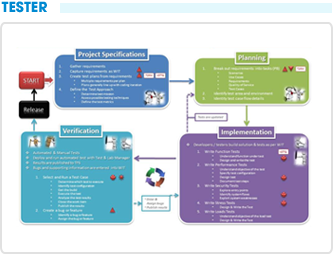024 38560777
Library (Thư viện)
Trong khoa học máy tính, thư viện là bộ sưu tập các hành vi được thực thi, đã được viết trong thuật ngữ của ngôn ngữ, nó có giao diện rõ ràng về các hành vi được hiển thị. Ngoài ra,các hành vi được cung cấp tái sử dụng bởi nhiều chương trình độc lập nhau. Một chương trình được gọi là thư viện khi nó cung cấp những hành vi thông qua các cơ cấu của ngôn ngữ.
By English
In computer science, a library is a collection of implementations of behavior, written in terms of a language, that has a well-defined interface by which the behavior is invoked.[clarification needed] In addition, the behavior is provided for reuse by multiple independent programs. A program invokes the library-provided behavior via a mechanism of the language. For example, in a simple imperative language such as C, the behavior in a library is invoked by using C's normal function-call. What distinguishes the call as being to a library, versus being to another function in the same program, is the way that the code is organized in the system.
Library code is organized in such a way that it can be used by multiple programs that have no connection to each other, while code that is part of a program is organized to only be used within that one program. This distinction can gain a hierarchical notion when a program grows large, such as a multi-million-line program. In that case, there may be internal libraries that are reused by independent sub-portions of the large program. The distinguishing feature is that a library is organized for the purposes of being reused by independent programs or sub-programs, and the user only needs to know the interface, and not the internal details of the library.
The value of a library is the reuse of the behavior. When a program invokes a library, it gains the behavior implemented inside that library without having to implement that behavior itself. Libraries encourage the sharing of code in a modular fashion, and ease the distribution of the code.
The behavior implemented by a library can be connected to the invoking program at different program lifecycle phases. If the code of the library is accessed during the build of the invoking program, then the library is called a static library. An alternative is to build the executable of the invoking program and distribute that, independently from the library implementation. The library behavior is connected after the executable has been invoked to be executed, either as part of the process of starting the execution, or in the middle of execution. In this case the library is called a dynamic library. A dynamic library can be loaded and linked as part of preparing a program for execution, by the linker. Alternatively, in the middle of execution, an application may explicitly request that a module be loaded.
Most compiled languages have a standard library although programmers can also create their own custom libraries. Most modern software systems provide libraries that implement the majority of system services. Such libraries have commoditized the services which a modern application requires. As such, most code used by modern applications is provided in these system libraries.
Like Doanh nhân số







































